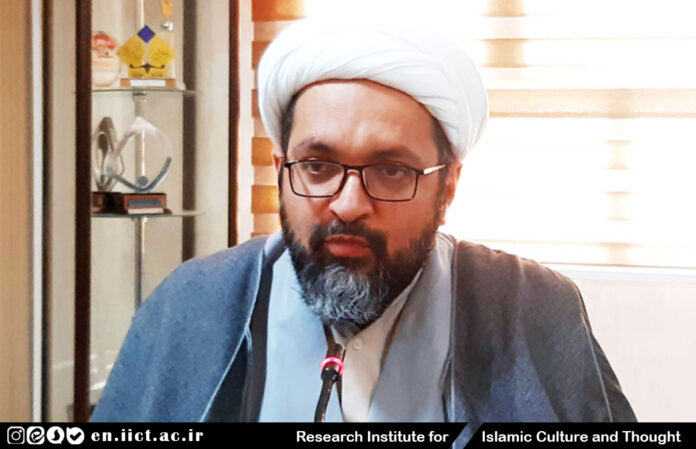According to the public relations report of the IICT, the scientific meeting on the topic of “Theology of Resistance” was held on Saturday, October 28th of this year by the Department of Contemporary Theology of the Institute, both onsite and online.
This scientific meeting was followed by the presence and presentation of the Seyed Sajjad Izdehi, Mohammad Baqer Pouramini and Mohammad Kashi Zadeh.
Here is the summary of what Dr.Kashizadeh presented:
“I present my discussions in several parts; The first point is that resistance has a basic meaning and some necessary consequences. In various texts, resistance has been interpreted as “confrontation”, while ” confrontation” is one of the semantic necessities of the word “resistance”. So if someone considers the word “resistance” to have the meaning of “confrontation”, he is wrong.
The meaning of “resistance” in Islamic culture
The second point is about the meaning of resistance. Resistance or “Muqavamah” in Arabic, is derived from the word “qaum” meaning “the people”, and it means not to show weakness, a kind of stance with strength. One of the necessary consequences of resistance is to “rebel”. The one who rebels, disobeys, and transgresses the order. This means not listening to the words of the other party. In the Islamic culture, resistance is where the rebellion and resistance that has taken place is for Allah, against other than Allah.
We should discuss this topic in terms of “Social theology”, which means the emergence of divinity in society. Discussing the theology of resistance, we talk about individual and social resistance, and we do not mean a place where a group of people rebel against each other. Therefore, the “resistance” is discussed in terms of social theology, but it is not just a social concept. It enjoys strong implications.
Theology is based on the individuals in order to emerge. Can a person who does not have the necessary inner courage, be considered an element of the social resistance? This is a serious question. Not everyone can join the resistance front. Only the ones who have found the resistant identity themselves, can join this “resistance”.
Theology of resistance is identity-marker. This identity is either based on religion or a more general matter. The religious identity creating “resistance”, has both positive and negative traits. The basis of the identity of a resistant individual or society is fighting and standing for Allah. This theology can also be considered in broader scope, and that is to be based on personality traits. There are some traits that everyone recognizes, whether a believer or not, is ready resist for the realization of these concepts, including freedom and justice. The positive trait of human identity of the “resistance” is freedom, justice and dignity. Any factor that harms humanity and human qualities is a factor that disturbs the human identity, and man resists and stands against it .
The last part of my discussion is about the relationship between “monotheism” and “the theology of resistance”. Though a foundational and basic concept, theology of resistance is derived and extended from “monotheism”. In order to achieve this, the believers should unite with each other in the community of faith under the rule of God. Faith and belief make believers care for each other. This is a positive trait. In the negative trait however, the one who accepts monotheism will deny the rulership of anyone other than Allah. If the rulership of other than God is denied, man cannot accept a lawmaker other than God. The result is an individual who is against any tyrant who wants to create a lifestyle with his own rules. Such an individual also negates class differences and social discrimination.




